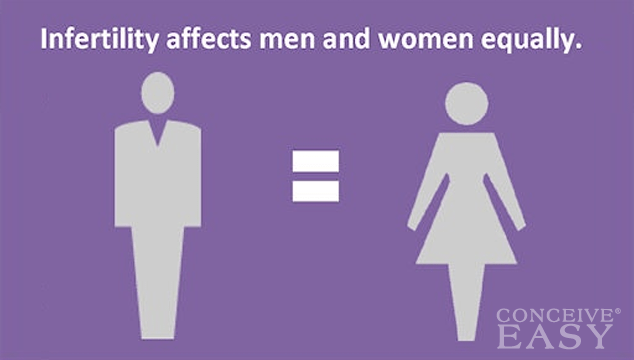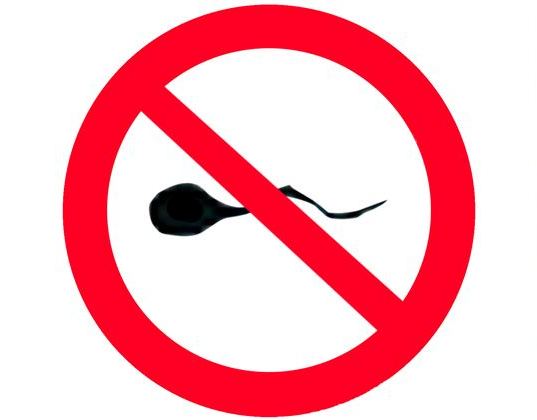
The issue of male infertility can leave men floundering and uncommunicative but taking a medical and holistic approach can have astonishing results.
(This article was published in The Irish Examiner February 23, 2014)
There are a range of labels and phrases around male infertility designed to kick a man when he’s down. There’s the word ‘jaffa’, slang for an infertile man, inspired by the seedless orange. There’s the reference to ‘shooting blanks’ and ‘bad swimmers’.
The terminology adds insult to injury for men struggling to come to terms with the fact that their ability to father a child is either severely compromised or downright impossible.

Thomas McCluskey, a 32-year-old security worker from Clondalkin, Co Dublin, was beginning to think he was in the latter category after he and wife Karen, (31) had spent five years trying to conceive.
Initially, he kept quiet about his difficulties.
“It’s not like you’d walk into the local and say to the lads ‘I’m shooting blanks’. There’s a stigma attached,” Thomas says.
Dr Tim Dineen, laboratory manager at Cork Fertility Centre (CFC), agrees. He conducted a series of interviews to study the male reaction to fertility problems while working on a masters in genetic counselling.
“When I conducted interviews for my thesis 10 years ago, male fertility was a taboo subject and I found men were very slow to discuss it.
“My research suggested that identifying the root cause of subfertility, (a less than normal capacity for reproduction), can help the male psychologically, in that he may not blame himself and/ or think that he contributed to his problem. Men may also be reassured that male factor subfertility can be overcome through various treatment options,” Dineen says.
His research also highlighted the psychological impact of subfertility on the man.
“Many men had feelings of disappointment, failure, anxiety and anger, particularly when it’s something they have little control over such as a genetic condition,” he says.
Then there was the impact of infertility on a relationship. A colleague of Dineen’s did a study which found men can suffer low self-esteem and have high levels of stress when a diagnosis of subfertility is made, and these feelings can be acerbated by a lack of openness to communication. This in turn can decrease the level of overall contentment with the marital relationship.
However, what many men did not realise, says Dineen, is that male factor subfertility problems are not as rare as they might think.

“We see men every week who think they are the only one with this problem, but in fact, in at least one third of all cases, subfertility can be attributed to the male,” he says.
McCluskey was surprised when his sperm count came back on the low side after he had it tested three years into trying for a baby. The doctor advised him to lose weight (he was 19½ stone at the time) and to cut back on smoking (20 a day) and drinking, (24 cans a week).
“There was some sperm there so I though I was not doing anything too wrong. The doctor said, ‘You’re a young lad, try and cut down’, but I didn’t make too much of an effort to change at the time,” he says.
After another year-and-a-half of trying unsuccessfully to conceive, McCluskey went again for semen analysis, the principle investigation used to evaluate male fertility — it measures the number of sperm, the motility, (ability to move), and the morphology, (shape).
Thomas’ sperm count was even lower this time around, but it took a TV show to get him motivated. He heard that TV3 were looking for a couple experiencing difficulties conceiving for a show called How Healthy Are You?.
“I had nothing to lose by doing the show. We didn’t have money to go down the IVF route and the show was looking at alternative therapies, so we went for it,” Thomas says.

The alternatives included analysing diet and lifestyle and making the necessary changes and trying out complementary therapies such as acupuncture and hypnotherapy.
Senior clinical embryologist Declan Keane, founder of the ReproMed clinics in Dublin and Kilkenny, was one of the show’s contributors. He’s a firm believer in exhausting the alternatives before heading down the route of advanced medical treatments.
“At present in Ireland, there’s no true link between those offering medical therapies and those offering complementary or holistic therapies. There should, in my view, be an integrated medical approach incorporating nutrition, dietary advice, psychological advice and other holistic therapies,” he says.
Being identified as subfertile can threaten men’s core identity. Keane believes men take infertility very personally, that it “hits the masculine or macho side”. While Dineen believes men find it difficult to distinguish between virility (sex drive), and fertility.
Many ask, “Am I not a real man if I can’t procreate?” he says.
CFC offers free counselling to help men deal with the psychological side. McCluskey concedes that he was under a lot of stress. “You can get very stressed thinking ‘I’ll never have kids’. From a male point of view you don’t want to think that you can’t father a child,” he says.
The couple seized the opportunities the show offered, changing diet with the help of nutritionist Elsa Jones, moving from heavily processed convenience foods to wholesome, fresh produce. They tried acupuncture with Karen Costin, a therapy Thomas said gave a “huge sense of relief” and hypnotherapist and psychotherapist Aisling Killoran put him in a better mental state. “It might seem like a lot of hocus-pocus to some people, but it’s actually quite practical. It relaxes you and puts you in a fantastic frame of mind,” says McCluskey.
But despite their best efforts, he got more bad news during the show. Another semen analysis showed no sperm present whatsoever.
Was this the end of the road? Not necessarily, Dineen says.
“The good news is that it is possible for him [a man with no sperm in the ejaculate], to still have his own biological child. We can carry out a testicular biopsy, Testicular Sperm Extraction (TESE), to retrieve sperm from testicular tissue; this may either be carried out on the day of ICSI treatment or a sample may equally be frozen and stored for use at a later date.”
ICSI (Intracytoplasmic Sperm Injection), one of the most popular techniques used to overcome the problems of low sperm count and poor motility, involves injecting a single moving sperm into the female partner’s egg, (collected for fertilisation outside the womb and transferred back after fertilisation has occurred).

At CFC, TESE is carried out under local anaesthetic and takes approximately 20 minutes; the clinic carries out approximately 40 procedures a year. Dineen says this method of sperm retrieval is very successful, and sperm is retrieved from tissue in about 80% of cases, resulting in a live birth rate of 42% per transfer.
However for men who undergo biopsy and no sperm are recovered, they do unfortunately hit a genetic cul de sac. “And you are then looking at options such as use of donor sperm,” he says. Donor sperm was not an option McCluskey had ever considered. It was suggested to him after the test where no semen was found.
“That was stunning news. That was life-changing. When it only takes one sperm to get pregnant, that news was devastating. I felt I had nothing to work with.”
In a panic, the couple sought more intense help from the therapists and doctors involved in the TV3 show. Declan Keane was encouraging. “He told me it takes three months to make sperm. I think that’s why my lifestyle changes didn’t take immediate effect. But I didn’t now that until he told me,” says McCluskey.
In the end, he did have something to work with. On January 5, he and Karen, an office administrator, had their first child, Thomas Jack (TJ).
Against what seemed like overwhelming odds, it was a spontaneous pregnancy. And amid all the stress and disappointment, the manner in which McCluskey learned he would finally become a father had its humorous side.
Karen was a week late menstruating and decided to do a pregnancy test.
McCluskey didn’t encourage her. “I said ‘Karen, we’ve been here so many times before’.” Karen did a test anyway but didn’t hang about for the result. “She was annoyed with me about something. She went off to work and left the pregnancy test on top of the cistern,” he says.

Later in the bathroom, he spotted the test. A casual glance gave way to an incredulous stare. “I’ll never forget it as long as I live. It was a massive surprise. There were two blue lines,” he says.
McCluskey rang his wife with the news. She didn’t believe him. In the end he had to send a photograph via his iphone. So now that he’s achieved what seemed the impossible, (in his words “a true miracle”), what advice does he have for other men dealing with infertility issues?
“Do your research. Don’t give up. You don’t necessarily have to go down the IVF or ICSI route. Examine your diet and lifestyle”.
And ultimately he says ‘Get yourselves checked out’.
“When you are coming to an age where having children is on the agenda, get the test done to see where you are on the scale.”
SOME CAUSES OF INFERTILITY
- Undescended testicles, a common defect that men can be born with and can lead to infertility issues in the future. The advice is to visit a urologist ASAP if this is an issue.
- Orchitis or inflammation of the testicles/ genital tract, caused by mumps.
- 15% of males are affected by a varicocele, an enlarged vein in the scrotum, which, if temperatures rise, can decrease the quantity and quality of sperm.
- Genetic issues such as cystic fibrosis or Klinefelter’s Syndrome (chromosomal condition).
These causes of infertility affect approximately one in six couples.
INFERTILITY Q&A

Q: What is infertility?
A. A couple is considered infertile where they have failed to conceive after 12 months of contraception-free intercourse and the female is under 34.
Q: Who’s to blame?
A. It’s split equally. In 40% of cases the problem lies with the male/female. In 10% cases, both have an issue and in the remaining 10% the cause is unknown. One in 25 males has a low sperm count and one in 35 is sterile.
Q. Does tight underwear and laptop use affect male fertility?
A. The jury is out. The issues have been raised but not proven. Environmental pollutants are a greater cause for concern.
Q: Are male infertility rates on the increase?
A. In the past, women were primarily seen as the problem when it came to infertility, but improvements in diagnostic tests and an increase in the numbers of men coming forward for testing have readdressed thatimbalance.
Q. How can a man improve his sperm count?
A. A good diet and lifestyle can help, including cutting back on smoking and drinking and getting adequate exercise. Some doctors advocate taking micronutrient supplements, including zinc and folic acid.
Q. Are there any new breakthrough/ cutting-edge treatments to help overcome male factor infertility?
A. There are some emerging methods, such as using a specific microscope lens or different petri-dish, to help select sperm for ICSI treatment but so far none of the evidence suggests that these result in higher birth rates.
There are also new tests being carried out to assess the potential of the sperm, eg DNA fragmentation, but the jury is out on how useful it is.
Q. Besides ICSI and IVF, are there other medical interventions?
A. Intrauterine Insemination may be used where one element of the sperm is sub-optimal but another element is fine — eg low sperm count but good motility (capable of moving spontaneously) or vice versa. Purified sperm is placed in the uterus on the day ovulation using a catheter.
Q. How do costs compare between different procedures?
A. At Cork Fertility Centre IUI is cheaper than IVF at €750 against €3,750. IVF is cheaper than ICSI (€500 difference). A consultation costs €200.
Keep Cool.
Source: The Irish Examiner
